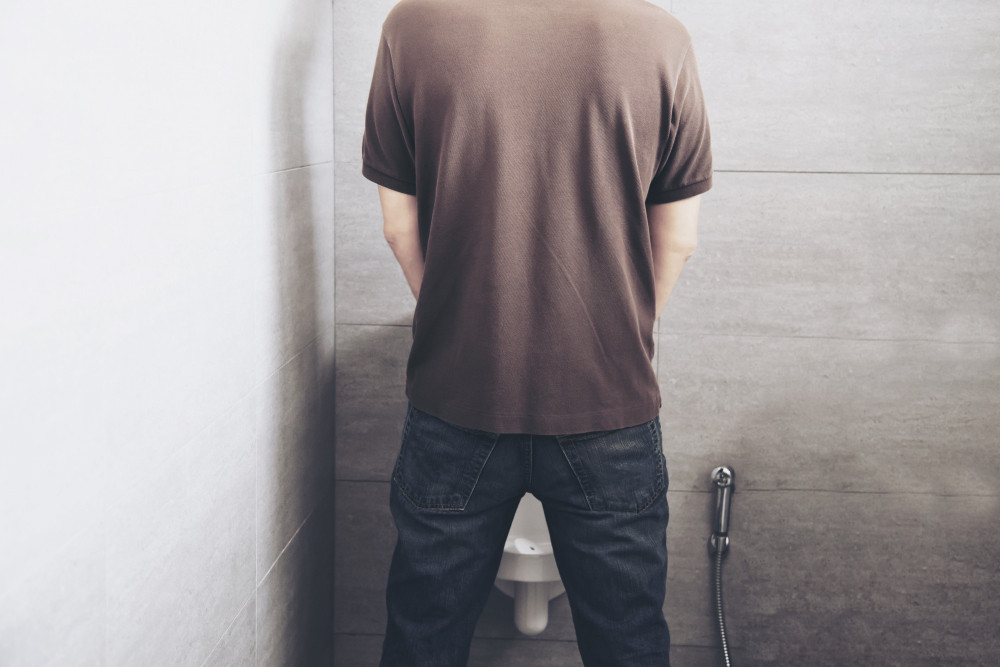The prostate is a small gland located in front of the rectum and below the bladder in males. This gland has a size similar to that of a walnut.
The prostate gland plays an essential role in the male reproductive system. The primary role of this organ is to produce a fluid that serves as nutrition and safeguards sperm. As men get older, they may develop a condition called Benign Prostatic Hyperplasia (BPH), which causes their prostate to become larger.
The Differences Between Prostate (BPH) and Prostate Cancer
An enlarged prostate (BPH) is not the same as prostate cancer, even though the signs and symptoms are very similar. . Prostate enlargement in BPH is a non-cancerous disorder in which prostate tissue grows but does not spread to other parts of the body. Meanwhile, cancer cells in the prostate multiply and may spread to other parts of the body (metastasis).
How to Recognize the Symptoms of an Enlarged Prostate (BPH)
The symptoms of benign prostatic hyperplasia (BPH) can vary. Among the most frequently encountered symptoms are the following:
- Frequent urination
- Urinating more frequently at night
- Urinating difficulties
- Weak or intermittent urine flow
- Difficulty emptying the bladder
- Urinating or ejaculating pain
- Change in urine color
- Unpleasant urine odor
You may also experience additional symptoms in addition to those described above, such as urinary tract infection and blood in the urine. These symptoms may worsen gradually and eventually resolve.
Remember that not all enlarged prostates result in symptoms. Some patients with enlarged prostates have no symptoms. If you suspect that you have an enlarged prostate or if you feel symptoms like having to urinate frequently, having trouble starting or stopping urine flow, or any other symptoms, it is important to see a doctor.
Read more: Differences Between Prostate Cancer And Jinak Prostate Magnification
What causes an enlarged prostate (BPH)?
The specific cause of prostate enlargement remains uncertain. However, according to experts, the natural balance of reproductive hormones may impact prostate enlargement with age.
Several other variables affect prostate enlargement, including:
Age
The risk of an enlarged prostate and its associated symptoms substantially increases with advancing age. However, prostate enlargement does not affect all men, and the severity of the symptoms that each individual experiences varies.
Family history
The presence of familial prostate disorders increases an individual's susceptibility to prostate enlargement.
Read more: Food Choices To Prevent The Massive Prostate Of Jinak
Other related disorders
Cardiovascular disease and diabetes are both associated with an elevated risk of prostate enlargement. According to scientific research, these conditions may serve as risk factors for the development of prostate enlargement.
Lifestyle
Lifestyle factors such as consuming fatty, high-calorie foods, being obese, and having excess fat around the waist may put additional pressure on the prostate gland and disrupt the control of hormones related to it. Engaging in regular physical activity and maintaining an active lifestyle can effectively decrease the risk of developing obesity, which in turn can indirectly lower the chances of experiencing prostate enlargement.
Untreated enlargement of the prostate may result in complications including urinary tract infections, stones in the bladder, damage to the kidneys, and damage to the bladder. Consult your doctor immediately if you experience any symptoms associated with prostate enlargement.
If you need medical advice or consultation, you can either visit a doctor or make use of the consultation features that are available in the Ai Care application by downloading the Ai Care application from the App Store or Play Store.
Looking for more information about other diseases? Click here!
- dr Nadia Opmalina
WebMD (2022). What Is BPH?. Available from: https://www.webmd.com/men/prostate-enlargement-bph/what-is-bph
Penn Medicine (2023). Enlarged Prostate. Available from: https://www.pennmedicine.org/for-patients-and-visitors/patient-information/conditions-treated-a-to-z/enlarged-prostate
Mayo Clinic (2023). Benign prostatic hyperplasia (BPH). Available from: https://www.mayoclinic.org/diseases-conditions/benign-prostatic-hyperplasia/symptoms-causes/syc-20370087
Cleveland Clinic (2022). Benign Prostatic Hyperplasia. Available from: https://my.clevelandclinic.org/health/diseases/9100-benign-prostatic-hyperplasia
Cleveland Clinic (2022). Prostate. Available from: https://my.clevelandclinic.org/health/body/23965-prostate
Mayo Clinic (2022). Prostate cancer. Available from: https://www.mayoclinic.org/diseases-conditions/prostate-cancer/symptoms-causes/syc-20353087











